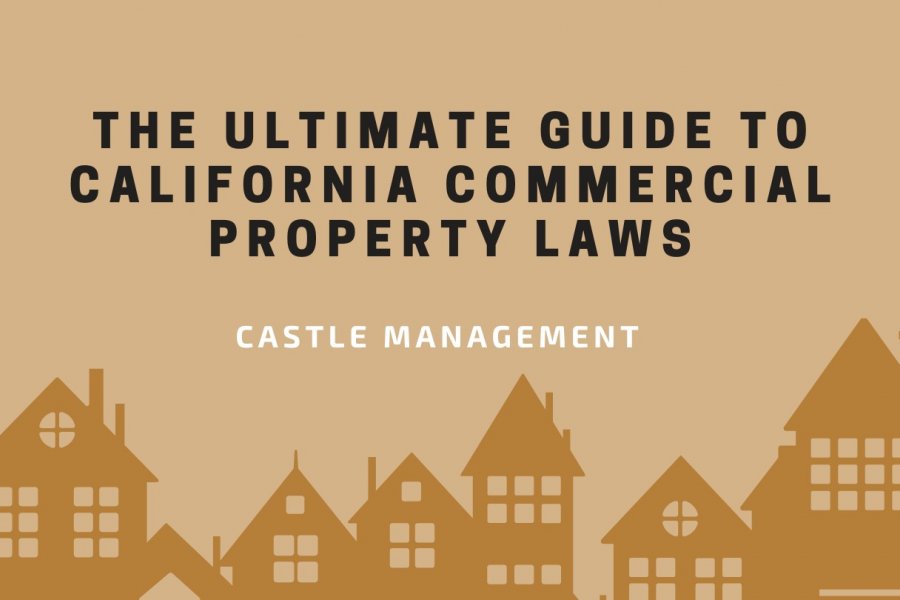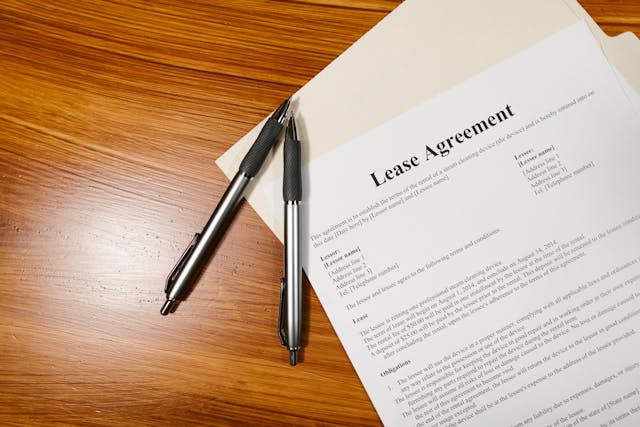
- Clear Leases Protect Your Investment: Detailed terms for rent, permitted use, maintenance, and termination prevent disputes and ensure compliance with California law.
- Dispute Planning Reduces Stress: Tiered dispute resolution clauses and clear default procedures help resolve conflicts efficiently and fairly.
- Tenant Rights Support Positive Relationships: Understanding security deposits, notice requirements, and contract-based rights fosters a respectful landlord-tenant relationship.
Owning commercial property in California offers exciting opportunities, but it also comes with legal responsibilities and regulatory challenges.
At Castle Management, we understand that as a commercial landlord, you need a clear grasp of the laws governing lease agreements, maintenance obligations, tenant rights, and local compliance. Local compliance requirements are essential to protecting your investment and avoiding costly disputes.
Learn How We Can Help You Maximize Your Home’s Potential!
Lease Agreements: The Foundation of Your Legal Relationship
A commercial lease is a legally binding agreement between a landlord and a business tenant. Unlike residential leases, commercial leases are highly customizable, and California law generally allows parties to negotiate most terms freely. However, clarity is crucial.
Your lease should clearly outline the length of the term, rent amount and increases, security deposit, permitted use of the property, maintenance responsibilities, and termination procedures. Whether the lease is month-to-month or fixed-term, specific provisions help prevent misunderstandings and strengthen your position if issues arise.
One of the most important sections is “permitted use,” which defines how the tenant can use the space. This helps ensure the property remains compliant with zoning and licensing laws.
Rent Control and Increases
California does not have statewide rent control for commercial properties. However, some cities, particularly those with mixed-use buildings, may have local ordinances or business protections that influence lease terms.

To avoid disputes, outline your rent structure clearly in the lease. Many landlords include annual increases tied to a fixed percentage or the Consumer Price Index (CPI). This protects your rental income against inflation and market changes while helping tenants plan ahead.
Dispute Resolution
Disagreements may still arise, even with a solid lease in place. Many California commercial leases include a dispute resolution clause requiring mediation or arbitration before filing a lawsuit. These options can be faster and less expensive than litigation, and they help preserve business relationships.
Consider including a tiered clause in your lease that outlines informal negotiations first, followed by mediation, and then arbitration if needed. This demonstrates your commitment to resolving conflicts fairly and helps foster a positive landlord-tenant relationship while still protecting your interests.
Why Partner With Castle Management?
Lease Termination and Defaults
Commercial leases usually define what constitutes a default and how it should be handled. For example, if a tenant fails to pay rent, you can issue a three-day notice to pay or vacate. If they still do not comply, you may file an unlawful detainer (eviction) lawsuit.
Before taking legal action, review the lease for any cure periods or notice requirements. Many leases allow tenants a short period to resolve the issue. Documentation is key; always keep a written record of notices and communications in case of a legal challenge.

Landlord Responsibilities
Commercial landlords are expected to keep the premises in a condition fit for their intended use. This includes maintaining essential systems such as the roof, electrical, HVAC, and plumbing, unless the lease specifies otherwise.
You are also responsible for ensuring that common areas are safe and accessible. For example, you must maintain adequate lighting, repair broken handrails or uneven walkways, and provide functioning locks. While tenants often take care of the interiors they occupy, you retain responsibility for structural integrity and shared facilities.
In California, landlords typically must give reasonable notice before entering the premises, usually 24 hours for inspections or repairs, unless it’s an emergency.
Learn More About Castle Management!
Tenant Rights
Tenants in commercial properties do not have the same protections as residential tenants, but they do have contract-based rights, including quiet enjoyment of the space, proper notice before entry, and adherence to all lease terms by the landlord.
One of these rights is the return of the security deposit within 21 days after the lease ends, along with an itemized list of any deductions. If deductions are made for repairs, landlords must justify them with receipts or reasonable estimates.
Insurance and Liability Protection
Landlords should require tenants to carry commercial general liability insurance that names the landlord as an additional insured party. This helps protect both sides in case of property damage or injury.
Additionally, it’s wise to carry your own policy to cover structural damage, loss of income, and liability for common areas. Many leases also include indemnity clauses that protect the landlord from claims arising from tenant operations.

Environmental and Building Compliance
Zoning and environmental regulations in California are particularly strict. Always ensure that your tenant’s business complies with local zoning rules and that any modifications to the property meet building codes.
Older properties may require special attention for environmental concerns such as asbestos, lead paint, or underground storage tanks. Make sure your lease holds tenants accountable for their waste disposal practices and requires notification of any spills or environmental hazards.
Why Work With a Professional Property Management Company?
Managing a commercial property involves more than rent collection. It requires lease enforcement, maintenance coordination, legal compliance, and tenant relations. A professional property manager can handle these tasks efficiently, offering expertise in leases, repairs, tenant communication, and local regulations.
They provide strategic insights on pricing, negotiations, and marketing, act as a buffer in difficult situations, and help protect you legally and financially. For landlords, the right property manager is a partner in safeguarding and growing your investment.
Discover Our Property Management Services!
Bottom Line
California’s commercial property laws are designed to encourage fair, responsible leasing relationships while giving landlords the flexibility to protect their investments. From drafting lease agreements to resolving disputes and maintaining your building, legal compliance and proactive management are essential.
Hiring Castle Management ensures you have expert guidance every step of the way, helping you stay compliant, manage tenants effectively, and protect your investment.
Disclaimer: Please note that the information provided in this blog is intended for general guidance and should not be considered as a replacement for professional legal advice. It is important to be aware that laws pertaining to property management may change, rendering this information outdated by the time you read it.
